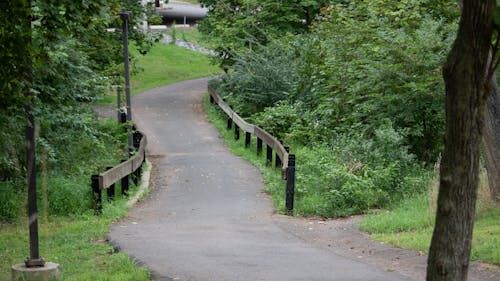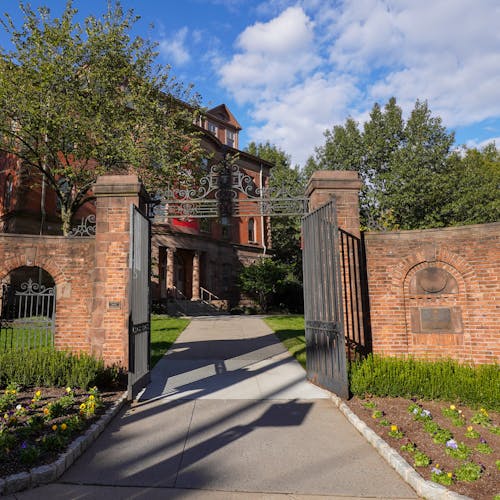SUTA: Embrace nature
Column: The Suta Slant

Terrence Malick is an impressive filmmaker. If you are unfamiliar with his work, I am attaching this video. It is about 3 minutes of some of Malick’s most breathtaking work. Central to Malick’s cinematography is a reliance on the natural world: how to capture nature and our place in it.
Malick’s work centers the environment. In fact, at times, it feels as though the actual person in the scene is secondary.
At about 1:40 in the video, there is a close-up of a human eye. The shot makes the eye seem like a universe unto itself — symbolic, I think, for what we can see and appreciate if we only decide to look.
Malick is a philosophical filmmaker, which means he uses the medium of film to raise important questions about the nature of our existence. I start with Malick, not because I like to pretend to be a cinema studies major, but because his message of being aware of the nature around us and his urging us to appreciate it feels essential for the moment of environmental distress we find ourselves in.
Because we exist at a time of incredible environmental distress, wildfires, droughts, hurricanes and tornadoes all over, Malick’s centering of nature and its beauty raises the ever-important question of how we appreciate the natural world and ensure its continued existence.
At times, it can feel as though we are losing everything in nature — that what we are experiencing now will only get worse, and ultimately, we will no longer be able to enjoy the natural world. For example, this meme sums up feelings of the worsening environmental crisis quite well.
While the meme might be extreme, the realities of a changing climate — a worsening climate — remain frightening.
A climate scientist in Portland, a city that was hit with severe heat waves this past summer, underscored the role of climate change, noting that the “magnitude of the heat” is higher due to climate change.
The environmental crisis is not going away. But we can do certain things, as students and as global citizens, that will change the culture surrounding nature. We can go from consumption to appreciation.
Like Malick, we can center nature as a way to find peace. As a place meant to be saved. As a place meant to be enjoyed.
To embrace nature as a source of peace and even escapism is to commit ourselves to its continued protection. To embrace nature is to admit it serves a vital purpose — not for raw goods but for a fuller human experience.
During the pandemic, we did things outside. Whether it was watching movies outside or cycling or hiking or kayaking, we embraced nature through the pandemic.
Being in nature was not just because it was the safest place to be during the height of the pandemic but because it offered a place where all of our problems seemed to disappear. In nature, we can find peace and solace in a way that few other experiences offer.
Appreciating nature not only serves as a therapeutic to the pressures of life, but it can also inspire us to do better in the fight against climate change.
None of this is to disregard the role of corporations or the place, indeed the necessity, of strict environmental regulation, but we students, who often feel unheard of by the government, can fight climate change by embracing nature.
If enough people and enough students embrace nature, we will be determined to protect it more.
We will eventually have the power to make sure elected leaders protect nature. We will eventually run corporations that destroy nature. We will eventually be able to dismantle the cultures of constant construction and destruction.
“All nature is doing her best each moment to make us well — she exists for no other end. Do not resist her,” as once said by Henry David Thoreau, the amazing American transcendentalist.
Do not resist nature. It seems simplistic, but it might be a path toward not just a better human experience, but also a better climate. If we just embrace nature like Malick, we can fully appreciate it and, hopefully, save it.
To resist climate change, we need to change the culture around the environment and how we view ourselves in the natural world. To accomplish that end, we have to embrace nature as fundamental to the human experience. All of that to say, embrace nature!
Richard Suta is a School of Arts and Sciences junior majoring in English and political science with a minor in French. His column, "The Suta Slant," runs on alternate Tuesdays.
*Columns, cartoons and letters do not necessarily reflect the views of the Targum Publishing Company or its staff.
YOUR VOICE | The Daily Targum welcomes submissions from all readers. Due to space limitations in our print newspaper, letters to the editor must not exceed 900 words. Guest columns and commentaries must be between 700 and 900 words. All authors must include their name, phone number, class year and college affiliation or department to be considered for publication. Please submit via email to oped@dailytargum.com by 4 p.m. to be considered for the following day’s publication. Columns, cartoons and letters do not necessarily reflect the views of the Targum Publishing Company or its staff.



